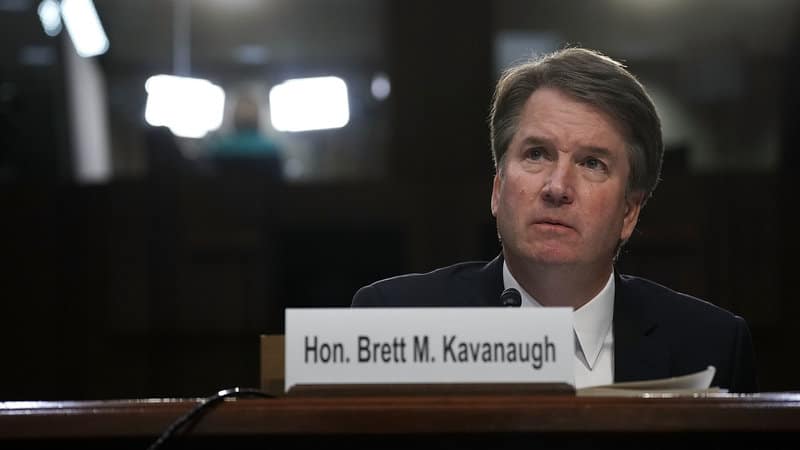Kavanaugh hearings face delay after accuser steps forward
MONDAY FEATURE
What Can History Tell Us About Impeachment of Trump?
Supreme Court nominee Brett Kavanaugh, the Trump Administration, and the GOP leadership in Congress are rocked by a sexual assault allegation.
Christine Blasey Ford, a research psychologist at Palo Alto University in California, came forward on Sunday to say that she is the woman cited in a letter — circulated by Senator Dianne Feinstein last week — which sets out the claim.
In an interview with The Washington Post, Ford restated the letter’s description of the assault in the early 1980, when she and Kavanaugh were at a high school party. She said a drunken Kavanaugh pinned her on a bed, groped her, and covered her mouth to keep her from screaming.
“I thought he might inadvertently kill me,” she said, “He was trying to attack me and remove my clothing.”
Kavanaugh denied the claims. The White House tersely said that it stood by the denial and is not withdrawing the nomination.
The immediate effect is on the timing of any confirmation of Kavanaugh. Republicans had hoped to rush through the process — in contrast to their months-long obstruction of a nomination by the Obama Administration in 2016, eventually preventing the appointment of Merrick Garland — before November’s Congressional elections.
Senator Charles Grassley, the chairman of the Judiciary Committee, tried to maintain his schedule for a committee vote on Thursday. His spokesman said conference calls would allow Democratic and Republican aides to interview Kavanaugh and Ford.
But Senator Jeff Flake, who sits on the committee, immediately put a question mark over that schedule. He said:
I’ve made it clear that I’m not comfortable moving ahead with the vote on Thursday if we have not heard her side of the story or explored this further….
We need to hear from her. And I don’t think I’m alone in this.
With the Republicans holding only an 11-10 majority on the committee, Flake’s opposition to a quick vote would hold up the process.
Senator Lisa Murkowski also said the committee might have to delay. In a Senate in which the GOP has only a 50-49 edge, Murkowski and Susan Collins are seen as key, possible decisive, votes.
Collins was more cautious. While saying the allegations are serious and Ford have to be personally interviewed, she tried to turn attention onto Democrats such as Feinstein:
What is puzzling to me is the Democrats, by not bringing this out earlier, after having had this information for more than six weeks, have managed to cast a cloud of doubt on both the professor and the judge.
If they believed Professor Ford, why didn’t they surface this information earlier so that [Kavanaugh] could be questioned about it? And if they didn’t believe her and chose to withhold the information, why did they decide at the 11th hour to release it? It is really not fair to either of them the way it is was handled.
But, in an indication that it knew of the letter well before Feinstein released it, the White House issued a letter from 65 women who said they knew Kavanaugh in high school and he had “always treated women with decency and respect”.
Trump’s advisors are hoping lack of corroboration for Ford’s account will soon set aside the issue. They are privately urging Trump — who has been accused by at least 15 women of sexually accosting them and who bragged in a 2005 video about his sexual aggression — not to speak out so as to avoid inflaming the situation.

